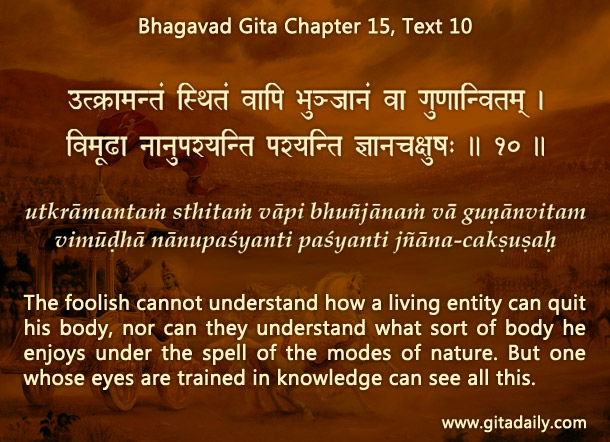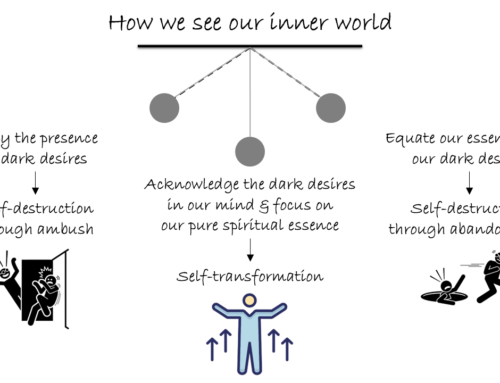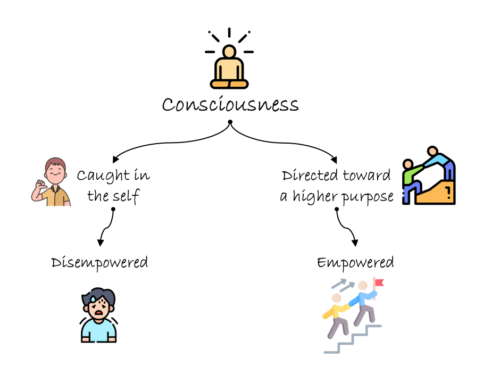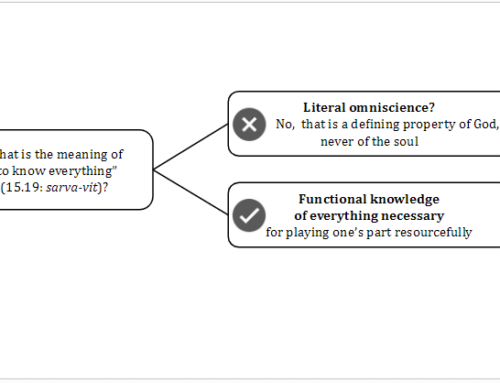In the Bhagavad-gita’s fifteenth chapter (15.07), Krishna cautions that our senses can mislead us, subjecting us to stress and distress. This caution echoes events in the Gita’s first chapter, wherein Arjuna had been misled by his eyes. On seeing the opposing forces, he had lost his will to fight (01.38).
Though our senses are valuable tools for navigating the world, they aren’t always reliable. They can sometimes sabotage our higher purposes, especially our highest purpose. What is that highest purpose? As mentioned in the same verse (15.07), we all are parts of Krishna — we are meant to do our part in his plan, which is to make us better and make our world better through us. To stay true to this glorious purpose, we need a resource beyond our senses: the eyes of knowledge (15.10: jnana-chakshu).
Significantly, this resource doesn’t reject sense perception, but equips us to use it for making intelligent inferences. Consider the sun that provides us heat and light (15.12) — and provides them in just the right quantity for our survival and sustenance. As we haven’t precisely positioned or powered the sun, we can infer that a benevolent higher being has.
We can arrive at the same inference by contemplating other beneficent arrangements that characterized our existence. Such arrangements can include the earth’s capacity to float in space (15.13), the ecology’s capacity to make foodstuffs (15.13) and the body’s capacity to digest food (15.14).
Through the Gita’s philosophical exegesis, Krishna equips Arjuna with the eyes of knowledge to make similar inferences about the impending war: since Krishna wanted it, it was meant for everyone’s ultimate welfare.
One-sentence summary:
Equipped with the Gita’s eyes of knowledge, we can use our sense perceptions to draw inferences that align us better with our higher purposes.
Think it over:
- For our senses to be reliable tools, what do we need additionally?
- What is our highest purpose?
- How can the Gita help us make intelligent inferences? Explain with an inference.
***
15.10: The foolish cannot understand how a living entity can quit his body, nor can they understand what sort of body he enjoys under the spell of the modes of nature. But one whose eyes are trained in knowledge can see all this.
To know more about this verse, please click on the image





everybody has eyes ,but no vision
That’s the sad truth for most people.
Hare Krishna 🙏
One lifetime is not enough for this spiritual science.
Ys,